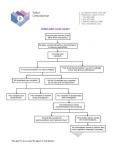Yukon Ombudsman
Procedures for Managing Complaints
Complaints
The Ombudsman Act authorizes the Ombudsman to investigate any complaint made by a person who believes an authority aggrieved them in their personal capacity as a result of a decision, recommendation, act done or omitted, or procedure used by the authority.
The Ombudsman Act authorizes the Ombudsman to try and settle a complaint.
The Ombudsman has broad investigation powers to investigate complaints made under the Ombudsman Act but does not have any adjudicative powers. There is no right of appeal if an authority decides not to follow the Ombudsman’s recommendations. However, the Ombudsman has authority to submit a report to the Commissioner in Executive Council and then to the Legislative Assembly if no action has been taken within a reasonable period of time after making a recommendation and to inform complainants of the recommendation(s) not acted upon.
File Management
In order for our Office to effectively manage complaints our office has two teams: Early Case Resolution Team and Investigation and Compliance Review Team. These two teams utilize two file management streams: investigation and early case resolution.

Printable version available for download.
Early Case Resolution (ECR)
All written complaints received under the Ombudsman Act will be managed through ECR unless a decision is made to investigate (see Investigation below).
The procedure for managing a complaint through ECR follows.
Our goal is to resolve all ECRs within 90 days from receipt of a complaint.
- Contact – An Investigator/Mediator from the ECR Team contacts the pre-designated contact for the authority.
- ECR - The Investigator/Mediator and the contact (or designate) enter into discussions about the complaint in an attempt to reach a settlement.
- Settlement - If settlement is reached, the Investigator/Mediator sets out the terms in a letter and provides it to the parties with a request to confirm agreement. If agreed to, the Investigator/Mediator sends a letter to the authority and the complainant confirming agreement.
- Follow-up - The Investigator/Mediator follows up as necessary to ensure settlement terms are met.
- Non-settlement - If settlement does not occur, the Investigator/Mediator forwards the file to the Ombudsman to decide if investigation is necessary.
- Publication - Statistics about ECRs will be published in the Annual Report of the Ombudsman and examples may be cited.
How do you decide when to investigate?
A written complaint received under the Ombudsman Act will proceed directly to investigation where it is determined that investigation of the complaint is necessary in order to properly address the complaint. Factors that may be considered in making this determination follow.
- Serious or complex - A complaint does not lend itself to early resolution due to the seriousness of the complaint or the complexity, such as a systemic complaint involving multiple complainants.
- Resolution unsuccessful - The complaint could not be resolved through ECR in a timely manner or at all.
Investigation
The procedure for managing an investigation of a complaint follows.
Our goal is to complete an investigation within 12 months from receipt of a complaint.
- Contact – Opening correspondence is sent to the authority to notify them about the investigation and request a contact for the investigation.
- Investigation – An Investigator/Mediator from the Investigation and Compliance Review Team gathers relevant evidence, analyzes the evidence, and draws conclusions about whether there is unfairness under the Ombudsman Act.
- Report – A preliminary investigation report is prepared.
- Consultation - The authority is provided with the preliminary investigation report to verify facts, consider the recommendations, and provide comments in relation to the preliminary report for consideration by the Ombudsman.
- Finalization – After reviewing the response received from the authority, the Ombudsman finalizes the report and recommendations and sends the report to the authority. The Ombudsman requests the authority provide its decision by a specified date about whether it will accept the recommendations.
- Recommendations Acceptance – If the authority accepts the recommendations, the Ombudsman follows up to ensure the authority has given effect to the recommendations.
- Recommendations Non-Acceptance – If the authority does not take adequate or appropriate action within a reasonable time after receipt of the report in respect of a recommendation, the Ombudsman may submit a report to the Commissioner in Executive Council and then to the Legislative Assembly and may also inform complainants of the recommendation(s) not acted upon.
- Complainant informed - The complainant is sent a letter setting out the result of the investigation and informed if no action is taken in respect of a recommendations.
- Publication –A summary of an Ombudsman Act complaint investigation may be published in the Ombudsman’s Annual Report. Statistics associated with recommendations made in investigation reports will be published in the Ombudsman’s Annual Report.
Relevant FAQs
- Do all complaints get investigated?
Not necessarily. Each complaint is unique and we try to choose the most appropriate way to deal with it. Sometimes that means an investigation. Other times, we may use mediation or negotiation. Whenever possible, we contact the government office to see if an early resolution can be achieved.
- What is an Ombudsman?
The term Ombudsman comes from the Swedish language, meaning “protector of the people”. There is no clearer or simpler way to express the core goal of this office. Our mission is to provide an independent means by which public complaints concerning the Yukon government can be heard and investigated. Our job is to promote fairness, and help improve government services.
- What does the Yukon Ombudsman do?
The Ombudsman is an impartial investigator who takes complaints regarding public organizations, like Yukon government. The Ombudsman can independently and impartially look at a matter to see whether or not you have been treated fairly. If the Ombudsman finds that you have been treated unfairly, she can make recommendations to address the unfairness. Independent review of individual complaints can work to improve government administration. We also work to educate the public and government about fairness in administration and the role of our office.




 @YukonOmbIpcPidc
@YukonOmbIpcPidc
 @yukonombipcpidc
@yukonombipcpidc
 Omb @yukonombudsman
Omb @yukonombudsman